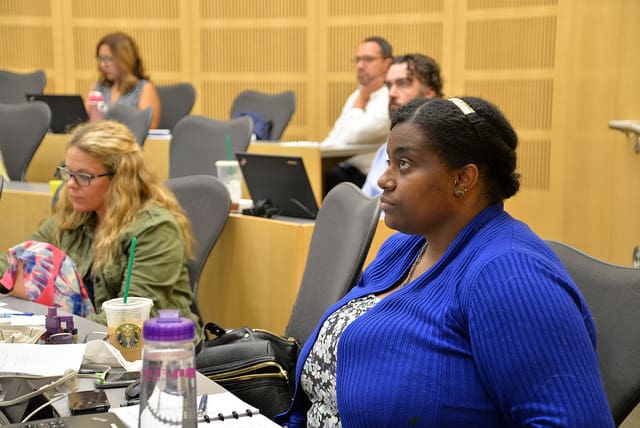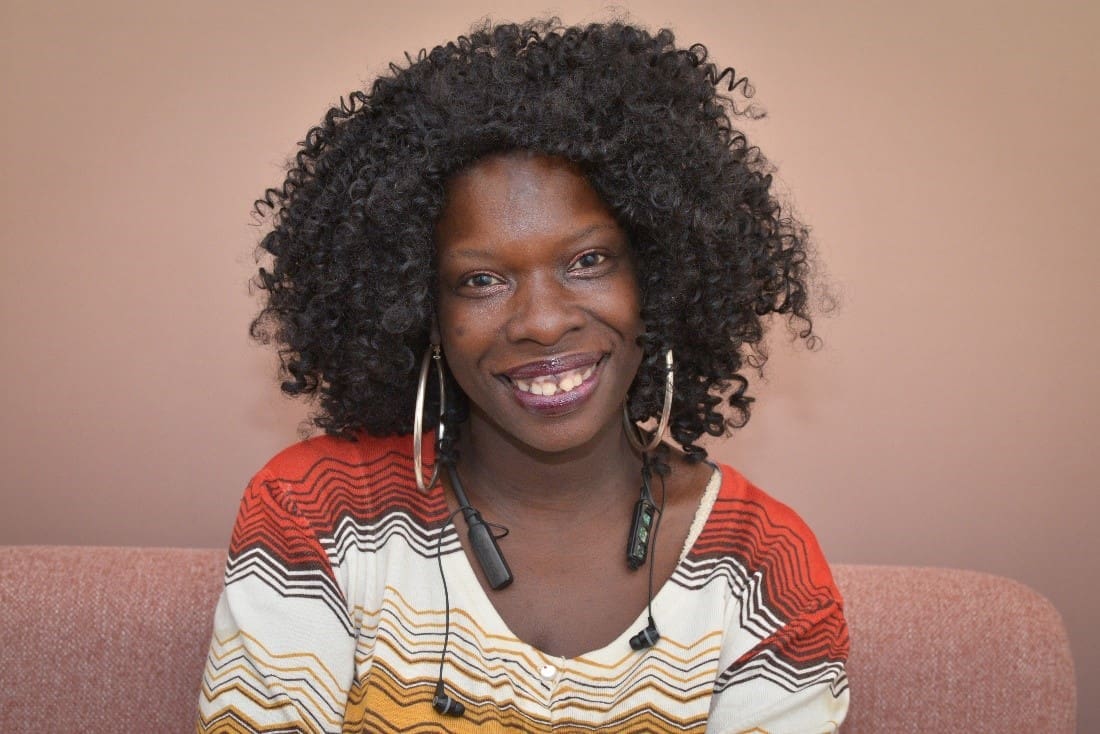 Although most universities and schools were closed in August, 11 public health professionals didn’t let that stop them from cultivating their skills and building networks. They attended the ninth annual Public Health Boot Camp, an intensive one-week educational program provided by the AIDS Foundation of Chicago (AFC) and the Institute of Public Health and Medicine (IPHAM), the nexus for all public health activities at Northwestern University’s Feinberg School of Medicine. The five-day-long program fast-tracks participants’ skills around HIV/AIDS and public health, leadership and career development and provides a platform for building professional connections with health professionals across Chicago.
Although most universities and schools were closed in August, 11 public health professionals didn’t let that stop them from cultivating their skills and building networks. They attended the ninth annual Public Health Boot Camp, an intensive one-week educational program provided by the AIDS Foundation of Chicago (AFC) and the Institute of Public Health and Medicine (IPHAM), the nexus for all public health activities at Northwestern University’s Feinberg School of Medicine. The five-day-long program fast-tracks participants’ skills around HIV/AIDS and public health, leadership and career development and provides a platform for building professional connections with health professionals across Chicago.
“HIV is still really new to the overall epidemiological world,” said Cynthia Tucker, vice president of prevention and community partnerships at AFC. “HIV professionals need to borrow lessons from people working on other public health challenges and build collaborations and partnerships. The Boot Camp is a great opportunity to do that.”
Leah C. Neubauer, Assistant Professor of Preventive Medicine, and Grisel Robles-Schrader, Research Portfolio Manager for Community & Stakeholder Engagement from the Center for Community Health, led the Northwestern efforts. Neubauer remarked, “It’s a great honor to work with the AIDS Foundation of Chicago, our Program in Public Health and Center for Community Health to develop and implement a public health training institute.” Robles-Schrader cited the “valuable opportunity to collaborate with AFC and faculty from across the country to work with participants to expand and enrich public health practice.”
Full days of workshops facilitated by public health leaders and academic researchers equip enrollees with the ground work of best practices in public health, which then they apply to capstone projects that they can take back to their organizations.
One such participant, Anthony Betori, used Public Health Boot Camp to further develop their plan to create accessible institutes for public health within communities. A former teacher, Betori fleshed out their plan with the oversight of Public Health Boot Camp leaders and suggestions from their cohort members.
“Public Health Boot Camp has directly improved my ability to better train people for entry-level positions in HIV prevention and care,” said Betori. “I will be taking things I learned … to improve my practice as an educator and strengthen the foundations of the Community Health Apprenticeship Program at Chicago House.”
 Seventy-five people have completed the program since its inception, all of whom still work within HIV and have experienced career growth. The Boot Camp often invites alums to teach sessions, like Johnathon Briggs, Senior Vice President, Digital at Chicago-based PR firm Public Communications Inc. He led a workshop around social marketing and its impact on public health behavior.
Seventy-five people have completed the program since its inception, all of whom still work within HIV and have experienced career growth. The Boot Camp often invites alums to teach sessions, like Johnathon Briggs, Senior Vice President, Digital at Chicago-based PR firm Public Communications Inc. He led a workshop around social marketing and its impact on public health behavior.
“I’ve been part of the HIV community as an activist, advocate and lobbyist since before the virus had a name, some thirty-odd years ago,” said Will Wilson, another participant and a member of AFC’s Illinois Alliance for Sound AIDS Policy (IL ASAP). “I’m grateful for the new tools I’ve learned and I plan to put some of them to use. More importantly, I’m grateful for the time I got to spend with future HIV community leaders.”
AFC and Northwestern University plan to release dates for the 2018 Public Health Boot Camp this fall; for the latest information, visit aidschicago.org/PHBC.
2017 Participants
- Eric Amaya, CALOR
- Tony Anderson, Chicago House
- Anthony Betori, Chicago House
- Sanford E. Gaylord, Regional Resource Network Program at the U.S. Department of Health and Human Services – Region V
- Jemeika M. Hicks, AIDS Foundation of Chicago
- Eduardo Mendoza, DePaul University
- Donna Sinclair
- Megan Sutherland, Children’s Place
- Will Wilson, IL ASAP
- Mara Williamson, AIDS Foundation of Chicago
- Thomas Zahorik, Dr. Jorge Prieto Family Health Center

